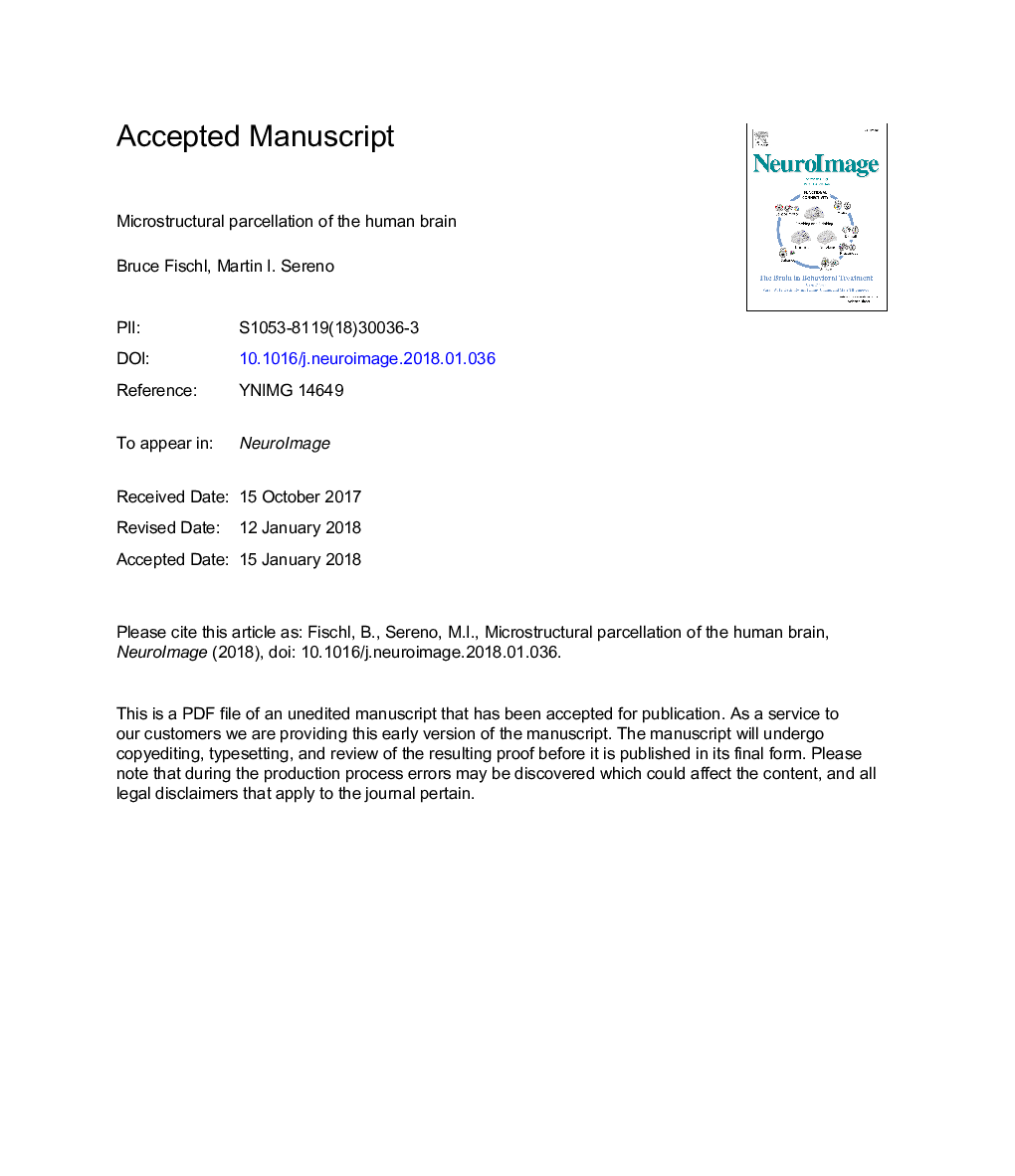| Article ID | Journal | Published Year | Pages | File Type |
|---|---|---|---|---|
| 11014793 | NeuroImage | 2018 | 25 Pages |
Abstract
The human cerebral cortex is composed of a mosaic of areas thought to subserve different functions. The parcellation of the cortex into areas has a long history and has been carried out using different combinations of structural, connectional, receptotopic, and functional properties. Here we give a brief overview of the history of cortical parcellation, and explore different microstructural properties and analysis techniques that can be used to define the borders between different regions. We show that accounting for the 3D geometry of the highly folded human cortex is especially critical for accurate parcellation. We close with some thoughts on future directions and best practices for combining modalities.
Related Topics
Life Sciences
Neuroscience
Cognitive Neuroscience
Authors
Bruce Fischl, Martin I. Sereno,
